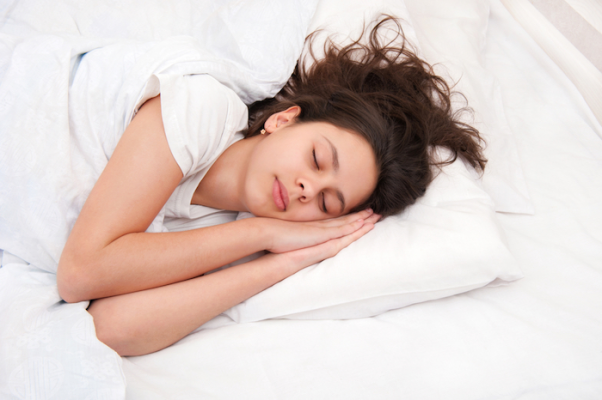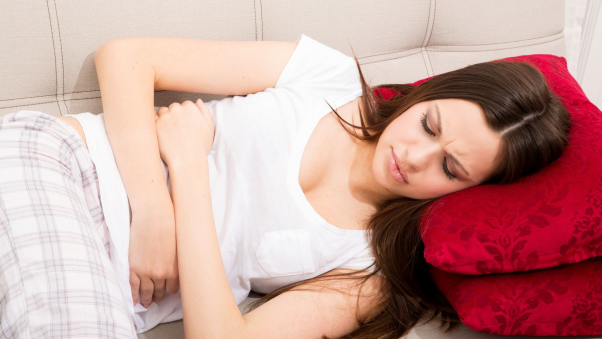For women who are not used to sleeping through their periods, sleeping during your period is a challenge. It is difficult to fall asleep and stay asleep while your body temperature is higher than usual. The changes in hormone levels also cause cramps and muscle contractions, which can keep you awake. The chemicals that cause cramps are called prostaglandins, and these chemicals are produced in the uterine lining. The pain that you feel from these contractions can be severe, making it difficult to sleep.
During your menstrual cycle, your sleep patterns change. For example, you may experience restless legs syndrome or difficulty winding down. You may also feel anxious or depressed. These symptoms will make it more difficult to fall asleep or sleep during your period. In addition, lack of sleep can decrease your body’s pain tolerance, which is crucial for overall health. You can also experience types of dreams that are disgusting during this time. During this period, it’s essential to get enough sleep to avoid cramps and other problems that can interfere with your ability to function normally.
Table of Contents
Can You Be Affected By Periods?
If you’re experiencing sleeplessness during your period, you’re not alone. Studies show that up to 30% of American women experience insomnia during their menstrual cycle. Many of these women experience symptoms that make it difficult to sleep. Fortunately, there are simple solutions to these issues. By following some common sense advice, you can get a better night’s sleep. As long as you’re not taking prescription medication, you can sleep without pain or discomfort.
What Happens During This Time?
- During periods, women’s hormone levels can fluctuate. This can lead to night sweats, hot flashes, and insomnia during the night. To help prevent insomnia, it is good to keep a diary of your sleep patterns during this time. Write down your symptoms every day, as well as the date of your period. Try to get more rest during the weeks before your period.
- In addition to hormone changes, your sleep can be disrupted during your period. During menstruation, your hormones increase and decrease, resulting in sleep disturbances and a reduced ability to concentrate. These physical symptoms can also affect your relationships, mood, and ability to work. In addition to sleep problems, you may be feeling tired and aches and fatigue during your period. The good news is that it’s possible to improve your sleep during your period.
- Before bed, women may toss and turn in bed or throw the duvet. These symptoms can result from hormone changes, and many women suffer from both too little and too much sleep during their periods. During your period, it’s crucial to get enough rest to keep your body functioning. It’s also important to practice relaxation and breathing techniques to reduce stress levels. Regardless of the cause, a good night’s sleep can make a huge difference in your physical and mental health.
- While the most common cause of insomnia is a lack of sleep, women may experience other physical symptoms, such as mood swings and increased blood pressure. Regardless of the reason, menstruation can affect the way you sleep, so it’s essential to be prepared and make sure you get plenty of rest. During your period, you’ll need to stay at a comfortable temperature so that you can get the rest you need.
Some Tips On Sleeping Properly During Your Period

Women’s bodies change during their periods. Physical changes occur alongside shifts in hormone production. These changes can lead to premenstrual syndrome or premenstrual dysphoric disorder (PMDD). A woman with PMS or PMDD usually sleeps too much or too little, and even mild symptoms can cause insomnia. As with menstrual cycles, sleep is essential for physical and mental health. Listed below are some tips for getting a good night’s sleep during your period.
Read also: Best Female Zodiac Signs To Marry
Practice Deep Breathing:
Many women find that deep breathing helps them sleep during their periods. It slows down their heartbeat and restores calmness. Try to avoid electronics before bedtime. Aside from this, women should not change their rest. It can cause an upset stomach and increase the risk of nighttime accidents. Also, it’s essential to keep a regular schedule for sleep. Changing it will cause your body to wake up earlier than usual.
Make Sure You Use A Sleep Aid:
During your period, your body produces hormones that interfere with your sleep. While you’re not supposed to be awake during your period, sleeping can prevent cramps and other problems. Fortunately, there are some ways to minimise discomfort and help you sleep peacefully. You can also use quilts for comfortable sleep. You can buy standard quilt sizes for beds.
Take A Warm Bath Before Bed:
Your body will drop its temperature while you sleep. The same goes for your breathing. By taking a warm bath before bed, your body will be lowered in temperature. During your menstrual cycle, your core body temperature can go up to 104 degrees Fahrenheit, much higher than optimum for sleeping. When your core body temperature is high, you’ll have difficulty falling asleep. Before bed, a hot shower will lower it to a comfortable 60-67 degree range.
The Next Step Is To Lower Your Body Temperature:
Your hormones cause your core body temperature to increase during your menstrual cycle. Your body needs to drop its temperature to fall asleep. A warm bath will lower your core body temperature. A bath before bed will make you feel sleepy and help you avoid a cold. Ideally, your sleeping temperature should be between sixty-67 degrees. If you can relax, you’ll be able to sleep better during your period.
Conclusion
During your menstruation, you’ll find yourself in bed less often than usual, making it more important to make up for lost sleep. It’s not only menstrual hormones that affect your sleep, but stress can cause you to feel irritable. It’s not uncommon to wake up with headaches, so be prepared to handle bloating. During your period, you’ll have trouble concentrating.


















